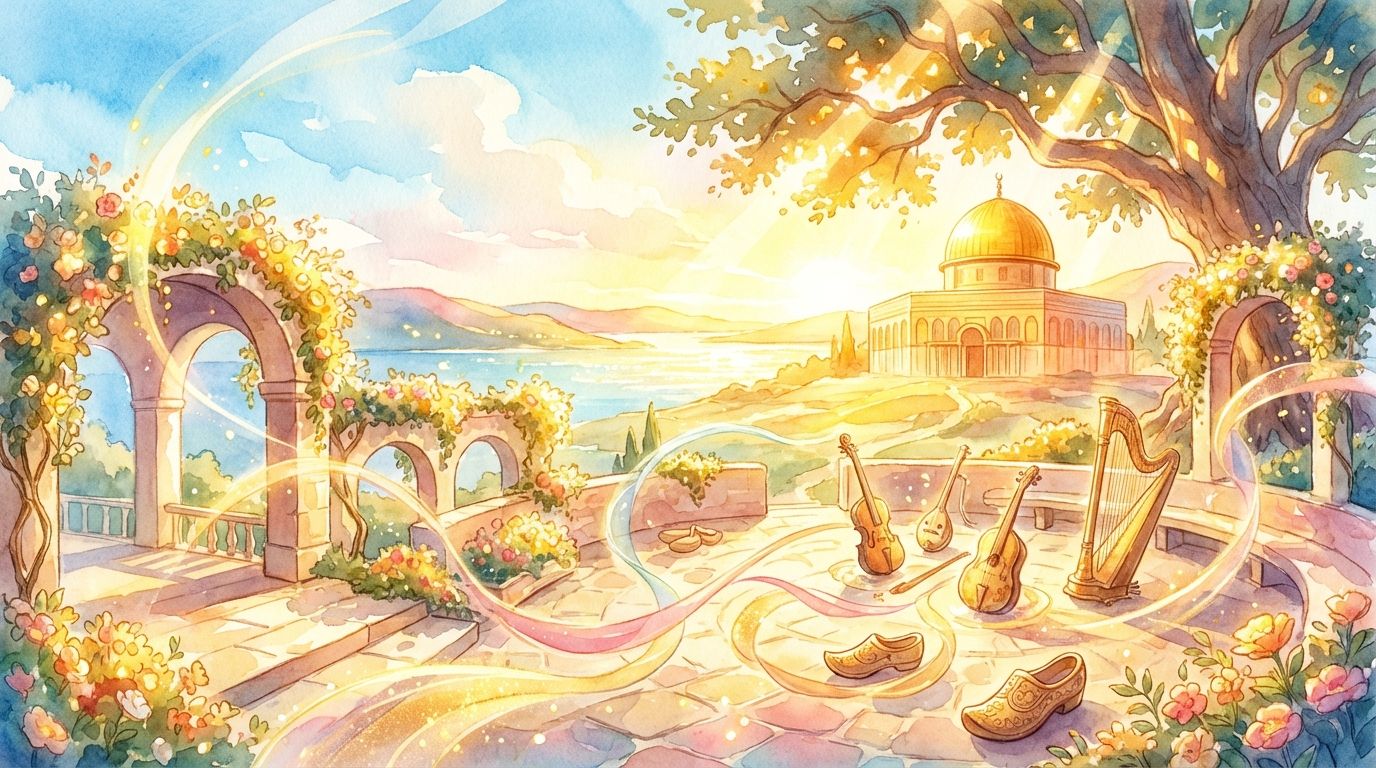Noach was an extraordinary man, a tzaddik whose righteousness upheld the entire world.
"Three tzaddikim comprised the foundation of the world: Adam, Noach and Avraham."
This is to be taken in the literal sense of the word. Each of these ensured the survival of the world. If not for Noach, the world would have been annihilated.
In spite of the general laxity in moral and ethical conduct, his own record was impeccable. he did not allow himself to be influenced by his peers. He submitted to the humiliation of being ridiculed by the three generations in whose time he lived:
- Generation of Enosh
- Generation of the Deluge
- Generation of the Dispersal
And remained steadfast in his service of Hashem. He faithfully observed the six mitzvot which Hashem commanded to Adam. (Bereishit Rabbah 26:1)
His wife Na'amah was equally righteous. Her name Na'amah signifies that her deeds were pleasing. (Bereishit Rabbah 23:3) She gave birth to three sons, Yefet, Cham, and Shem, who all followed Hashem's ways as taught to them by their father, Noach, and grandfather, Metushelach. Of the three, Shem is listed in the Torah first because he was the greatest of them.
Noach is described by the Torah as a tzaddik, "...perfect in his generations." (Bereishit 5:9) What is the implication of this last addition? It teaches that Noach was righteous only in relation to his own generation. Had he lived in Moshe's or Shumel's time, He would not have been considered great. Thus Noach is termed tzaddik as compated to his wicked generation.
According to another view, however, the above verse is said in Noach's praise, implying that if he maintained his righteousness even in an immoral climate, he would have become incomparably greater had he lived in Moshe's or Shmuel's time (by learning from their examples).
How can we reconcile these contrasting views and understand Noach's personality?
It is true that by obeying all of Hashem's commandments and refraining from sin, Noach did what was expected of him. For this, the Torah calls him a tzaddik. Yet he is criticized by Chazal (our Sages) in a subtle manner for not exerting himself beyond that which was required of him. Noach should not have quietly acquiesced to the flood. He should have stormed the very gates of heaven with fasting and prayer, seeking mercy from G-d. Noach offered a sacrifice after the flood, but he really should have brought it before the catastrophe; it might have caused the decree to be revoked.
Some say that the reason Noach did not pray for his contemporaries was not that he was neglectful, but that he could not find ten righteous people to participate with him. In Noach's family, counting both men and women, there were only eight people. Without ten righteous people, an evil decree cannot be revoked, as in the case of Sedom (Bereishit 18:32). (Bachya; Yad Yosef)
Although the generation was granted a hundred and twenty years' time to reflect upon Noach's words and repent, no one was impressed by his constant warnings. People did not fear danger because they felt secure in the knowledge of their colossal physical strength. Besides their extraordinary bodily strength, these generations were well versed in the art of magic and therefore felt secure and unafraid.
Rabbi Yehudah said that even though Noach was righteous, it was still not worthwhile for G‑d to protect the world because of him. Come and see! Moshe did not ask for anything on the basis of his own merit. Rather, he depended on the merit of the Patriarchs. But Noach, unlike Moses, had no other person on whose merit he could depend.
The building of the tevah served not only as a reminder to the wicked but was also necessary to purify Noach himself. Through fulfilling Hashem's mitzvah of constructing the tevah despite everyone's jeering, Noach himself became spiritually elevated.
---------------
Source: Midrash Says; Me'am Lo'ez; Chabad





















